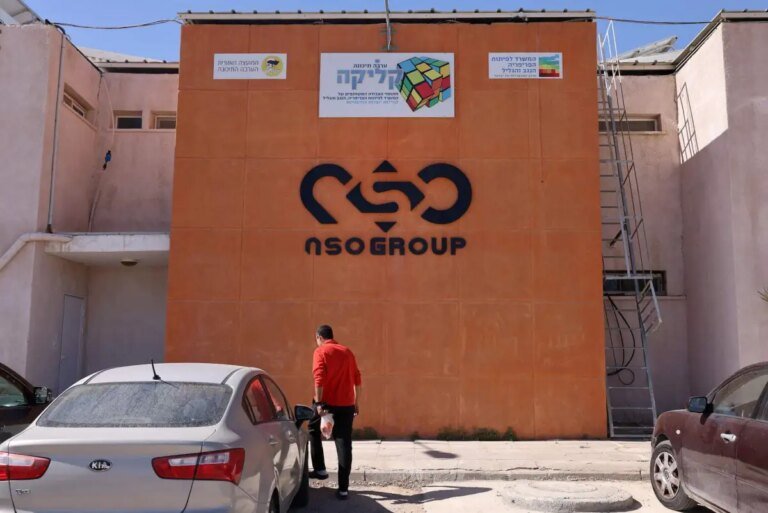
Contents
US Investment Group Acquires Israeli Spyware Maker NSO Group in Multi-Million Dollar Deal
NSO Group, the notorious Israeli spyware maker, has been acquired by a US investment group in a deal valued in the tens of millions of dollars. The company’s spokesperson, Oded Hershowitz, confirmed the acquisition, stating that the investment group has acquired controlling ownership of NSO Group. The deal comes after years of controversy surrounding the company’s spyware, which has been used to target journalists, dissidents, and human rights defenders around the world.
The acquisition of NSO Group by a US investment group has sent shockwaves throughout the tech industry, with many experts raising concerns about the implications of the deal. According to reports, the investment group, led by Hollywood producer Robert Simonds, has invested tens of millions of dollars in NSO Group, acquiring controlling ownership of the company. The deal was confirmed by NSO Group’s spokesperson, Oded Hershowitz, who stated that the company’s headquarters and core operations will remain in Israel, despite the change in ownership.
Background and Controversy
NSO Group has been at the center of controversy for years, with its spyware being used to target journalists, dissidents, and human rights defenders around the world. The company’s spyware, known as Pegasus, has been used to hack into the phones of thousands of people, including high-profile targets such as journalists, politicians, and activists. In 2021, the US Commerce Department banned American companies from trading with NSO Group, citing concerns about the company’s spyware being used to target US government officials abroad.
Previous Ownership and Acquisitions
NSO Group has had a complex ownership structure over the years, with the company being acquired and sold several times. In 2014, NSO Group was acquired by US private equity firm Francisco Partners, before being retaken by its founders, Omri Lavie and Shalev Hulio, in 2019. In 2021, the California-based Berkeley Research Group took over management of the fund, before Lavie retaken control of NSO Group as majority owner in 2023.
Some key highlights of the acquisition include:
* The deal is valued in the tens of millions of dollars
* The US investment group, led by Robert Simonds, has acquired controlling ownership of NSO Group
* The company’s headquarters and core operations will remain in Israel
* NSO Group’s co-founder and executive chairman, Omri Lavie, will no longer be involved with the company
According to John Scott-Railton, a senior researcher at the Citizen Lab, the acquisition raises concerns about the potential for NSO Group’s spyware to be used to target American citizens. “NSO is a company with a long history of going against American interests and supporting the hacking of American officials,” Scott-Railton said. “In what world can such a person be trusted to properly oversee a company like NSO Group?”
Implications and Concerns
The acquisition of NSO Group by a US investment group has raised concerns about the potential implications of the deal. Many experts believe that the acquisition could lead to the increased use of NSO Group’s spyware by US law enforcement agencies, potentially jeopardizing the rights and freedoms of American citizens. Others have raised concerns about the potential for NSO Group’s spyware to be used to target journalists, dissidents, and human rights defenders in the US and around the world.
Some quotes from experts and officials include:
* “NSO Group’s spyware has been used to target journalists, dissidents, and human rights defenders around the world. The acquisition of the company by a US investment group raises concerns about the potential for the spyware to be used to target American citizens.” – John Scott-Railton, senior researcher at the Citizen Lab
* “The acquisition of NSO Group by a US investment group is a concerning development, given the company’s history of controversy and its potential impact on human rights and freedoms.” – Anonymous, human rights activist
Some relevant data and statistics include:
* Over 50,000 phone numbers have been identified as potential targets of NSO Group’s spyware
* NSO Group’s spyware has been used to target journalists, dissidents, and human rights defenders in over 50 countries around the world
* The US Commerce Department banned American companies from trading with NSO Group in 2021, citing concerns about the company’s spyware being used to target US government officials abroad
Conclusion and Future Directions
The acquisition of NSO Group by a US investment group is a complex and concerning development, with potential implications for human rights and freedoms around the world. As the deal moves forward, it is essential to consider the potential risks and consequences of the acquisition, and to ensure that the company’s spyware is not used to target American citizens or jeopardize the rights and freedoms of people around the world.
Conclusion: The acquisition of NSO Group by a US investment group is a significant development in the tech industry, with potential implications for human rights and freedoms around the world. As the deal moves forward, it is essential to consider the potential risks and consequences of the acquisition, and to ensure that the company’s spyware is not used to target American citizens or jeopardize the rights and freedoms of people around the world.
Keywords: NSO Group, spyware, Pegasus, US investment group, Robert Simonds, Omri Lavie, Shalev Hulio, Francisco Partners, Berkeley Research Group, Citizen Lab, human rights, freedoms, surveillance, hacking, journalists, dissidents, activists, US Commerce Department, ban, trade, American citizens, law enforcement agencies.
Hashtags: #NSOGroup #Spyware #Pegasus #USInvestmentGroup #RobertSimonds #OmriLavie #ShalevHulio #FranciscoPartners #BerkeleyResearchGroup #CitizenLab #HumanRights #Freedoms #Surveillance #Hacking #Journalists #Dissidents #Activists #USCommerceDepartment #Ban #Trade #AmericanCitizens #LawEnforcementAgencies.
Source link